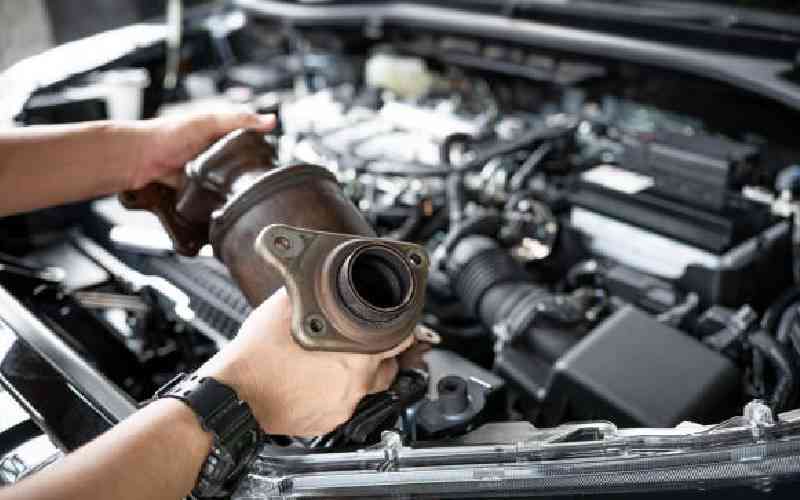×
The Standard e-Paper
Stay Informed, Even Offline

On a hot Friday midmorning Mary Muthoni pulls in at a Roysambu roadside garage in Nairobi's Kasarani in a red Nissan Juke. She wants the vehicle's catalytic converter removed.
The middle-aged woman says that she has noticed that her car loses power whenever she is overtaking on the highway and she thinks it's risky for her. Her friend has advised her to have her muffler (catalytic converter) removed to obtain optimum performance. The said friend had done that with her car.